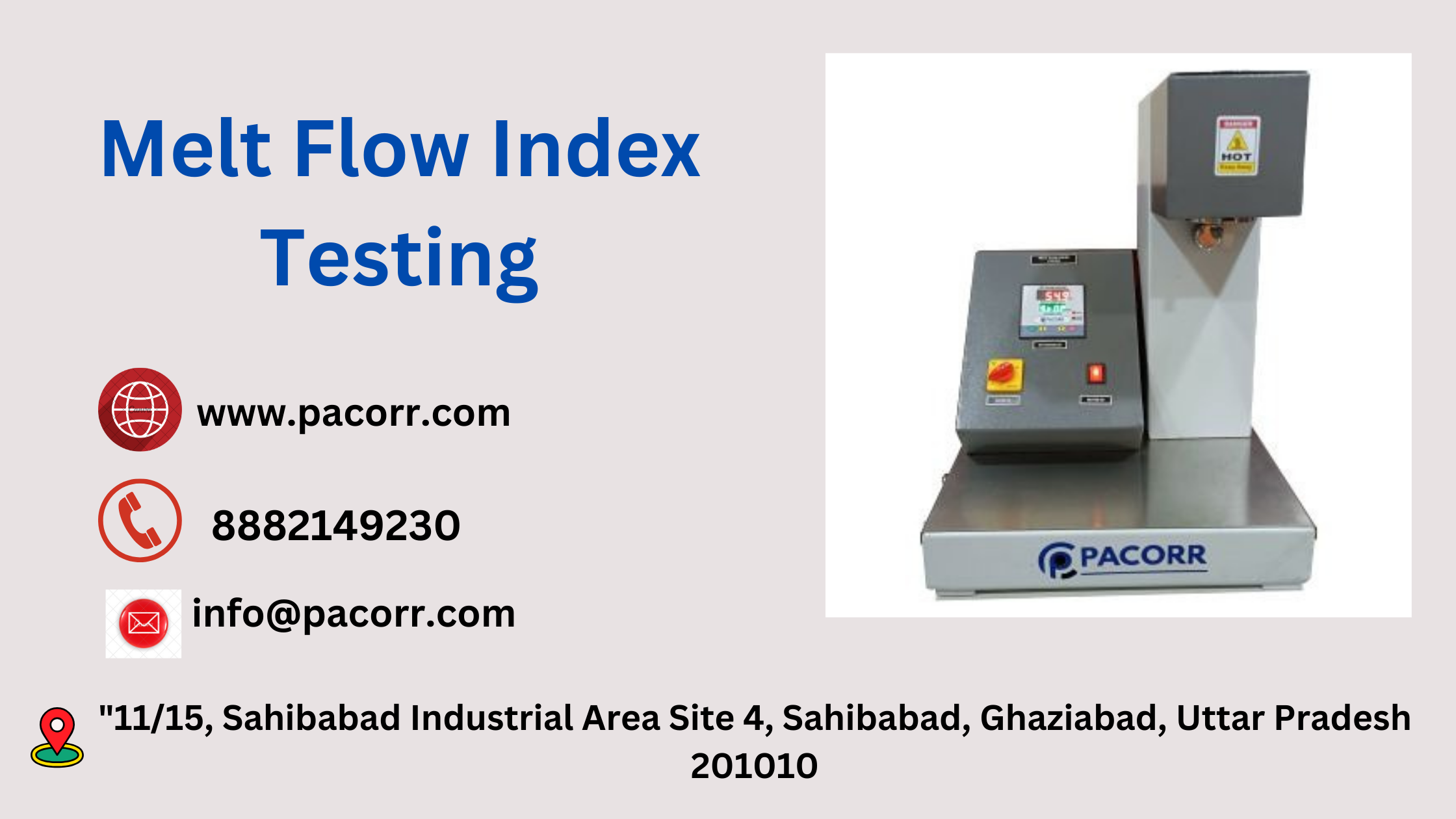Understanding the Melt Flow Index Tester: A Comprehensive Guide
The Melt Flow Index (MFI) Tester is a critical instrument in the plastic manufacturing industry. This device measures the rate of extrusion of a thermoplastic polymer through a die of specified length and diameter under prescribed conditions of temperature and pressure. The MFI is a crucial parameter that helps in determining the quality and characteristics of polymers, influencing their processing and application.
What is Melt Flow Index?
The Melt Flow Index is a measure of the ease of flow of melted plastic and is expressed in grams per 10 minutes (g/10 min). This value indicates how many grams of polymer are extruded in 10 minutes through a standardized die at a specified temperature and pressure. A higher MFI indicates a lower viscosity, meaning the material flows more easily when melted.
Importance of MFI in the Plastic Industry
- Quality Control: MFI testing is essential for maintaining consistent quality in plastic production. It ensures that the polymer batches meet the required specifications and performance standards.
- Material Selection: Different applications require polymers with specific flow characteristics. MFI helps in selecting the right material for processes like injection molding, extrusion, and blow molding.
- Process Optimization: Knowing the MFI of a polymer allows manufacturers to adjust their processing parameters, ensuring efficient and cost-effective production.
- Product Performance: The MFI value can impact the final product's properties, such as strength, flexibility, and durability. Consistent MFI values help in achieving uniform product performance.
How Does the Melt Flow Index Tester Work?
The Melt Flow Index Tester operates by extruding molten polymer through a die under controlled conditions. Here’s a step-by-step overview of the process:
- Sample Preparation: A small amount of polymer sample is prepared and placed in the testing chamber.
- Heating: The chamber is heated to a specific temperature, typically between 190°C and 230°C, depending on the type of polymer.
- Extrusion: A piston applies a standardized load (weight) to the molten polymer, forcing it through the die.
- Measurement: The extruded polymer is collected, and the amount extruded in a 10-minute period is weighed to determine the MFI.
Features of Pacorr's Melt Flow Index Tester
Pacorr's Melt Flow Index Testing is designed to provide precise and reliable measurements, ensuring high-quality control in polymer manufacturing. Here are some key features:
- Advanced Microprocessor Control: Ensures accurate temperature control and consistent testing conditions.
- User-Friendly Interface: Easy-to-use controls and digital display for straightforward operation and data reading.
- Robust Construction: Built with durable materials to withstand high temperatures and repeated use.
- Versatility: Capable of testing a wide range of thermoplastic materials, making it suitable for various industrial applications.
- Compliance with Standards: Adheres to international testing standards such as ASTM D1238 and ISO 1133, ensuring global acceptance of test results.
Applications of Melt Flow Index Testing
- Quality Assurance: Ensures that each batch of polymer meets the required specifications before being processed into final products.
- Research and Development: Helps in developing new polymer grades and understanding their flow properties for different applications.
- Process Control: Allows manufacturers to monitor and adjust processing conditions to maintain consistent product quality.
- Regulatory Compliance: Ensures that products meet industry standards and regulatory requirements for material properties.
Conclusion
The Melt Flow Index Tester is an indispensable tool for the plastic manufacturing industry, providing crucial data on the flow properties of polymers. Pacorr's advanced MFI tester ensures precise, reliable, and efficient testing, aiding manufacturers in maintaining high-quality standards, optimizing processes, and developing new materials. Understanding and utilizing the MFI can significantly enhance the quality and performance of plastic products, making it a vital aspect of polymer science and technology.
